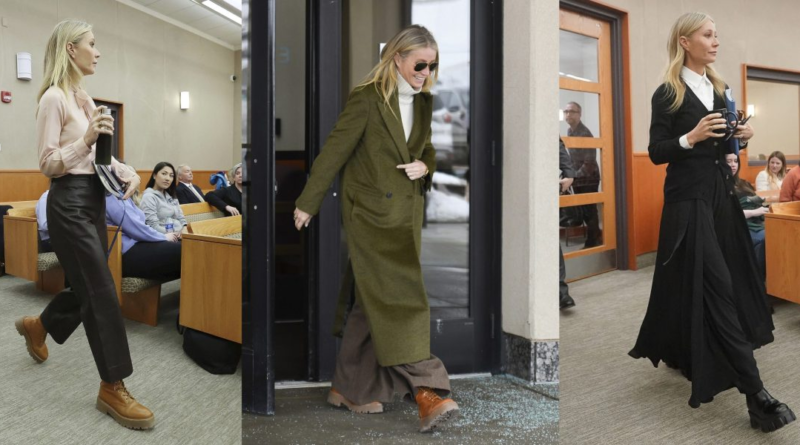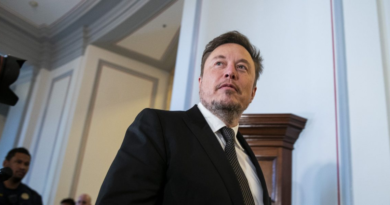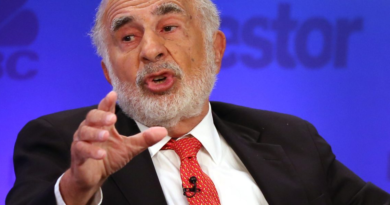'Stealth wealth' trend rises in the wake of the COVID pandemic
They’re the biggest of brands. But with no logos. And that’s the whole point.
Call it stealth wealth, or quiet luxury. For the rich and those who aspire, logo-free fashion with outsized price tags is having a moment — at least among people who can spend in the face of higher inflation and a volatile economy.
It’s a come-and-go trend that, while spiking in the pandemic’s wake, traces its roots as far back as the American industrialists of the 19th-century Gilded Age and France in the 1700s. And retailers are taking note, as are more designers looking to capture not only the rich but their wannabes, too.
Think Hollywood nepo baby and Goop multimillionaire Gwyneth Paltrow and her head-to-toe Prada, luxurious cashmere sweaters and Celine boots during her week in a Utah courtroom in a dispute over a ski crash.
She was a picture of neutral-toned designer duds, and those who know luxury easily spotted the brands behind her staid, logoless, very pricey wardrobe.
“When you know, you know, and that’s sort of the point,” says Robert Burke, a luxury retail consultant. “The people they care about, the people in their rooms, know exactly what they’re wearing. And they’re the only ones who matter.”
TV trendsetters
Cue HBO’s hit “Succession,” the story of the uber-rich, cutthroat Roys led by the snarly and — SPOILER — now-dead patriarch Logan.
Costume designer Michelle Matland has created pricey yet stealth wardrobes unique to key characters as they have evolved, delighting fans who have followed her fashion breadcrumbs since the show’s 2018 premiere.
“It shouldn’t have bling quality,” she says. “You’re always going to have your, I guess, Kardashians — you know, the people who wear things that draw attention. They may have the same amount of money, but different aspirations.”
The stealth fashion world is perfectly tailored dark suits, often bespoke; bare baseball caps with perfectly rounded rims; and neutral power pieces worn by the only female Roy sibling, Shiv.
No logos for the Roys and their jet set, though one important striver in their midst had to learn about stealth wealth the hard way.
“It’s incredibly accurate. Every time you look at it, it tells you exactly how rich you are,” Shiv’s outsider husband, Tom Wambsgans, tells Logan of the Patek Philippe he presents the billionaire early in “Succession.”
With a trademark mumble and nothing in the way of a thank you, Logan rebuffs, then gives away, the birthday gift emblazoned with the name of the company whose watches can sell for north of $300,000.
Fast-forward to the latest season, at yet another Logan birthday bash. This time it’s Tom, still the groveler but a far savvier one, dissing wannabe Bridget’s display of luxury: a conspicuously huge $2,890 Burberry tote in a plaid familiar to fans of the company, sans logo.
“She’s brought a ludicrously capacious bag,” Tom snarls at his underling, Greg. “What’s even in there, huh? Flat shoes for the subway? Her lunch pail? I mean, Greg, it’s monstrous. It’s gargantuan. You could take it camping. You could slide it across the floor after a bank job.”
Splashy to classic
Paltrow, to be fair, has always been drawn to a sleek, minimalist luxury. But her recent trial wardrobe was blasted out on TV at a time when more brands are putting understated (yet pricey) tones and shapes on runways and shelves.
Some are doing it while also staying true to customers living their spends out loud with flashy, recognizable silhouettes, fabrics, logos and bling.
“The stealth wealth mood was solidified in this season’s buys when the usually splashier brands, like Loewe, Saint Laurent, Miu Miu, leaned into the more classic sensibility,” says Jodi Kahn, vice president of luxury fashion at the high-end retailer Neiman Marcus.
Those designers joined companies that have always done it, including some worn on “Succession” and the back of Paltrow: The Row, Brunello Cucinelli and Loro Piana among them.
Burke says much of the moment can be explained by the pandemic, when young aspirational buyers flush with stimulus money and savings went after big brands with visibly big statements.
“To some degree, there is a fatigue now, along with uncertainty in the economy,” he says. “People are feeling they don’t want to show they have a lot of money necessarily.”
The quiet luxury moment has counter-moments, as fashion cycles generally do.
Companies from toothpaste makers to discounters are putting more premium items like $10 toothpastes and $90 creams on supermarket shelves. Some are looking for new ways to pump up sales and profits by focusing on premium items amid an overall sales slowdown.
Martin Pedraza, CEO of The Luxury Institute, a research, consultancy and employee training firm, says stealth wealth is a long-standing code among the uber-rich. Now, with a white collar recession, “all the people getting laid off want to look very pristine.”
Can they afford to do it in the $1,390 Tom Ford hoodie worn by Kendall, another Roy? Maybe not, but they’re picking up more affordable cashmere and other goods from mass-market labels like J.Crew, Banana Republic and Vince. It’s the difference between $400 or less and upwards of $2,000.
“It’s all about fabric and texture,” Matland says. “You can have a cashmere sweater you get at J.Crew, but you can see the difference with what a more expensive one from another brand looks like.”
The evolution of quiet
Analysts note that it’s during good times when people want to show off, not when nerves are raw about financial futures. Explains Pedraza: The rich try to imitate the masses as those in the middle and top of the mass mimic the minimalist rich.
He cites other stealth eras in fashion. There was the minimalist aesthetic of the 1990s, when Donna Karan and Miuccia Prada made practical dressing fashionable, and a show of stealth wealth amid the recession of 2008-09.
Patricia Mears, deputy director of the Fashion Institute of Technology’s Museum at FIT, goes back even further.
“People with real money and power have always done this, at least in the United States,” she says. “We have this sort of WASP culture, Protestant culture, that turns away from maximalism.”
That’s only part of a larger story, Mears says.
“You really have to go back to the end of the 18th century. You have the fall of the French monarchy, and then you have this sort of dual rise of industrialization and the rise of urbanization. And so men step into what is called the Great Renunciation.”
There’s a turn away from powdered wigs and floral-brocaded suits covered with lace.
“All of this court life goes away, and now you have the real power base being the industrialists. They come in, they build wealth and power, and they’re doing it in a uniform, the dark suit,” Mears says. “A lot of scholars have said that this really becomes the respectable uniform if you want to be both powerful and understated.”
Does mimicking stealth wealth work? Investing in quality staple pieces is achieved for longer-lasting wear and less waste, but trying to pull the wool over the eyes of the rich with cheaper alternatives can be a problem. Because after all, when you know, you know.
But minimalism isn’t everything. No one expects that logos, along with recognizable signature prints and edgier silhouettes, are going anywhere.
“There will always be people who want the logos. Chanel could hardly give up its logo,” Pedraza says. “But there are always going to be brands that cave to what’s going on.”



